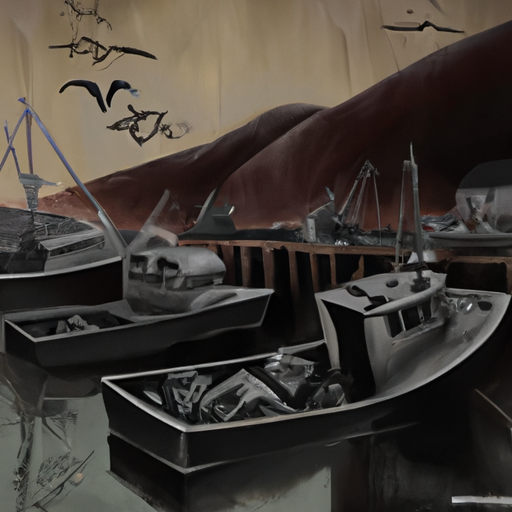The Disquieting Impact of the Opioid Crisis on Newfoundland and Labrador’s Fishing Industry
In a recent article on Times Colonist, the widespread implications of the opioid crisis in Canada were brought to focus. In this case, the crisis has been linked to a surprising victim – the fishing community in Newfoundland and Labrador. Fish harvesters are reportedly refusing to fish, primarily articulating their reasons around low crab prices. However, a disturbing subplot seems to be the proliferation of the opioid crisis, which has sharply impacted this particular industry.
The Opioid Crisis and the Fishing Industry
The relationship between the ongoing opioid crisis and the fishing industry is not far-fetched. The rampant misuse of prescription drugs, particularly opioids, has led to insidious implications, including skyrocketing rates of addiction, homelessness, and crime. Despite being a nationwide problem, areas like Newfoundland and Labrador that heavily rely on physically taxing industries like fishing are more susceptible to the impacts of this crisis.
Impact on Workers
Opioids often become the go-to solution for fishermen dealing with long hours of strenuous work leading to chronic pain—painting a picture of an insidious cycle of dependence, stress, and the inability to fish. Sadly, this crisis compounds the existing problems plaguing the industry such as low prices, causing a significant workforce decline.
Effects on the Overall Industry
With the workforce dwindling, the entire fishing industry and its associated services feel the pinch. Such a disruption could implicitly equate to economic instability for areas like Newfoundland and Labrador, where a considerable portion of revenue relies on fishing.
Combatting the Effects
Addressing this issue requires a comprehensive and multifaceted approach. From increased awareness and education about the detrimental effects of opioid misuse, to constructive discussions around earnings in the fishing industry, several steps can be taken to mitigate this crisis. What’s also imperative is the distribution of naloxone—an antidote used to reverse an opioid overdose—and classes on how to administer this life-saving medication, particularly in communities highly impacted by the opioid crisis.
Opioid Class Action
At a broader level, the opioid class action litigation in Canada is placing corporations and institutions who’ve irresponsibly facilitated the spread of opioids under scrutiny. This may not only provide compensation for victims, but also pave the way for stricter controls and regulations on opioid distribution—contributing to long-term solutions to this crisis.
Key Takeaways
- The opioid crisis is exacerbating the problems of the fishing industry in Newfoundland and Labrador, with workers turning to these drugs to cope with harsh work conditions and chronic pain.
- Along with increased crime and homelessness, the crisis is also contributing to a decline in the fish harvesting workforce.
- Comprehensive strategies encompassing awareness, education, naloxone distribution, as well as a reevaluation of fishing industry wages, can help counter the crisis.
- The ongoing opioid class action lawsuit in Canada might help enforce stricter regulations on opioid distribution, impacting the crisis positively in the long run.
Concluding Thoughts
The far-reaching impacts of the opioid crisis in Canada are a stark reminder of the urgency of this situation. As we have seen, the fallout not only affects individuals but ripples through industries and communities too. The issue affecting Newfoundland and Labrador’s fishing community is illuminating: addressing the opioid crisis necessitates a carefully choreographed dance between medical policy changes, employment regulations, pharmaceutical legislation, and, of course, community support. As a nation, our focus must be to interrupt this devastating cycle, ensuring the ripple of consequences does not extend further, damaging more lives and communities than it already has.
